Blog
Published on VoteWatch.eu.
During the first six months of the current term of the European Parliament (July 2014 – December 2014), the three pro-European groups at the centre of the spectrum have succeeded in being ‘on the winning side’ much more often than the other groups, as a result of pre-vote agreements between them. Had there not been the vote in January 2015, when the political groups founded impossible to reach consensus on the Commission’s working plan for the current year, we could have concluded that a (super) grand coalition is alive and well. However, the picture is much more complex.
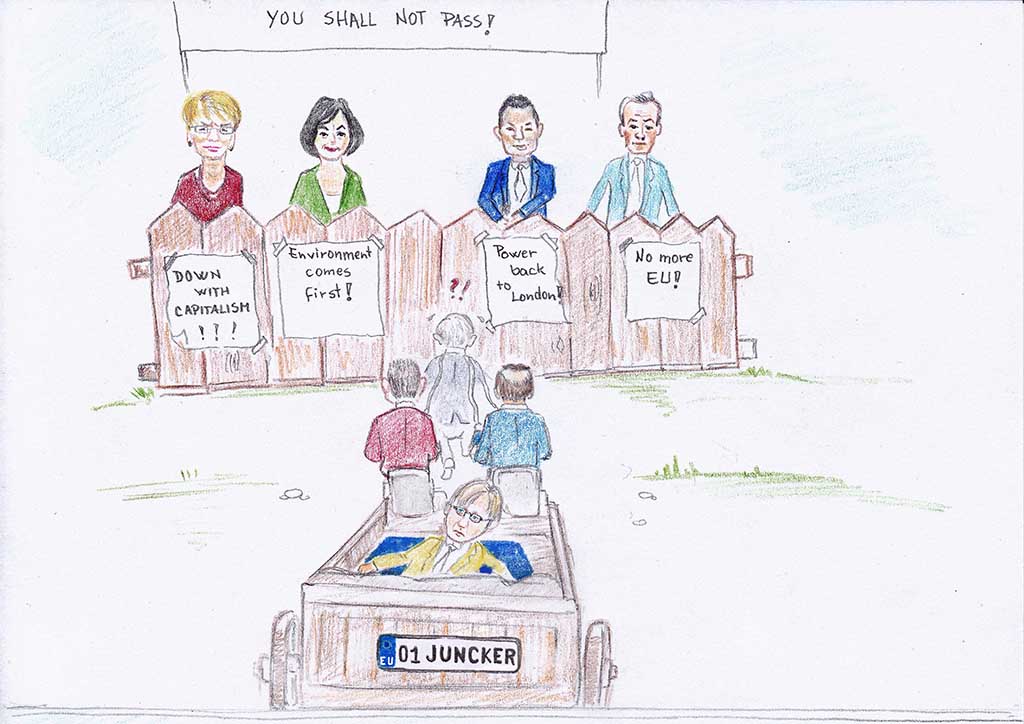
EPP group has won more votes (voting ‘yes’ if the majority of the Parliament voted ‘yes’, or ‘no’ if the majority voted ’no’) than any other political group (92.5%). EPP is closely followed by the ALDE group (90%) and then by the S&D group (85.8%). In this respect, the situation has not changed much after the May 2014 elections.
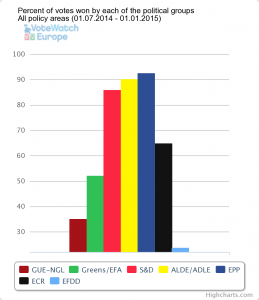
Some important votes have already taken place in the first six months of the 8thparliamentary term. Among these, the vote on the approval of the new Commission led by Jean-Claude Juncker was a milestone. The dynamic of this vote confirmed the existence of a ‘super grand coalition’ composed of the main pro-European groups (EPP, S&D, ALDE). These groups were interested in supporting the college, as they all had commissioners ‘inside’.
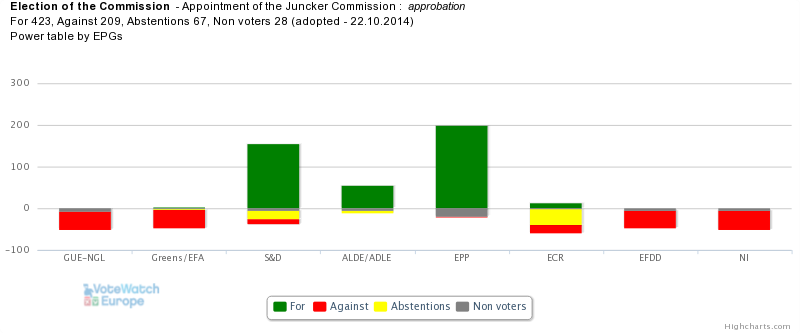
These three groups also voted together on a number of issues linked to further European integration, such as the increase of funding for the EU 2015 budget, or on the implementation of the European semester. All in all, the two biggest EP groups, the centre-right EPP and centre-left S&D groups have voted the same way in almost 80% of the votes, which is 7% more often than before the EU elections in May 2014 as shown by the graph below.
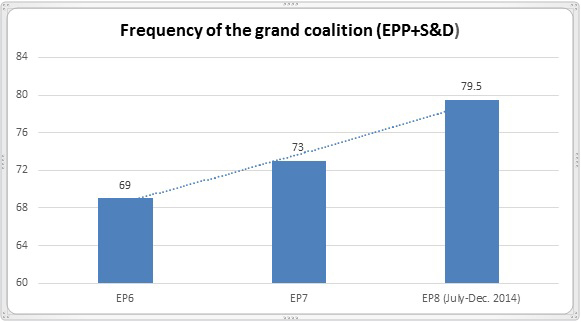
The political groups outside this super-grand coalition have been on the winning side much more rarely: ECR won 65% of the votes, the Greens 52%, GUE-NGL 35% and EFDD only 23%.
Such a development makes it much more difficult for the public to understand what the alternatives proposed by these mainstream political forces are, and therefore for the citizens to relate to any of them. In exchange, it creates the impression of an EPP-S&D governing coalition (joined by ALDE), thus fuelling the narrative of the fringe groups who try to position themselves as the real ‘opposition to the EU governing coalition’.
A marriage under stress
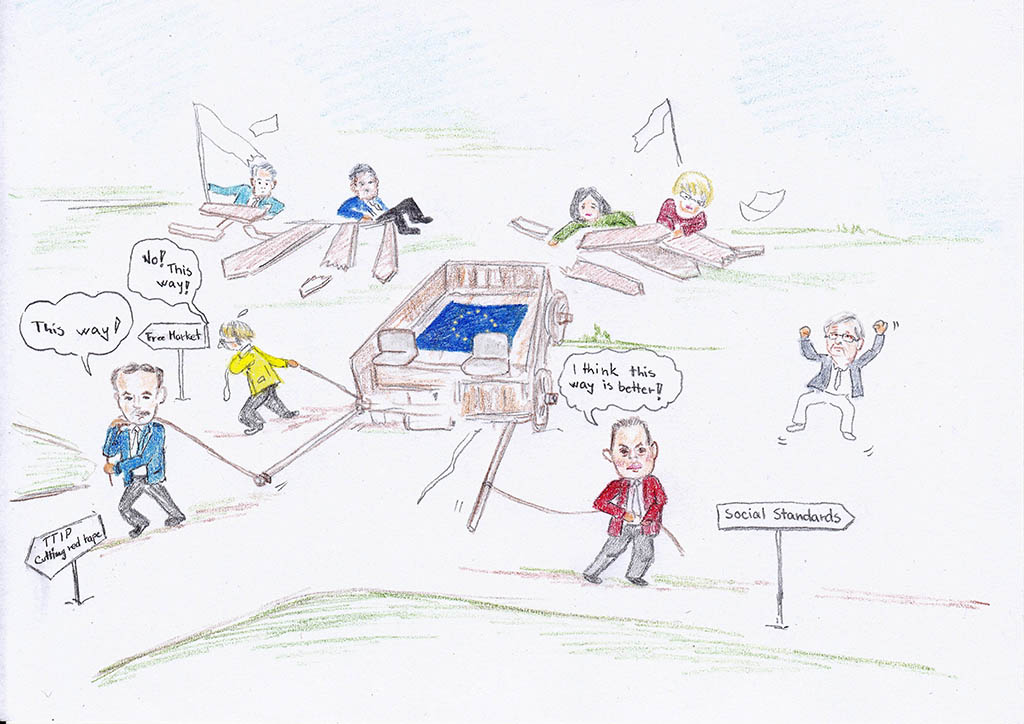
Moreover, the unusual developments at the plenary sitting held in January, when the Commission’s working plan for 2015 was voted, announce that this ‘marriage’ is troublesome for the political groups as well. In a dramatic display of power play, the political groups voted down each other’s proposals one by one, thus leaving the Parliament as an institution with no official position on what the priorities of the Executive lead by Mr Juncker should be for this year.
It seems Pandora’s box was opened when measures aimed at reducing red tape were proposed, along with the debate over TTIP. This greatly antagonised the left , who argued that social and environmental standards would be affected. In this instance, the EPP and S&D behaved more like senior and junior governing partners who are unable to agree internally before the matter goes wide into the open.
This is a clear signal that, after the EU elections in May 2014 and the Spitzenkandidaten process, the European Commission has become more political and that it will have a more difficult time working with Parliament. The new balance of power in the EP makes it more laborious for the Executive to push its agenda: the EPP is the largest group, but is far from having a comfortable majority. The rise in numbers of the far left and the nationalists have substantially complicated the majority building processes, which inserts an element of unpredictability as regards to the outcome of some the most controversial pieces of legislation expected to be dealt with in 2015.
Concretely, we should expect that the debates over proposals to reduce red-tape, those that affect environmental agenda, extend the internal market for services and strengthen economic supervision (revision of the 6-pack), as well as the TTIP (particularly investors’ protection clause) will be fiercely disputed and the votes will be too close to call, unless some kind of consensus is reached beforehand.
Below are just a few examples of votes from the past term, where outcomes might be different in the new EP, given the changes in the balance of power:
Macroeconomic supervision, part of 6-pack, adopted in September 2011:
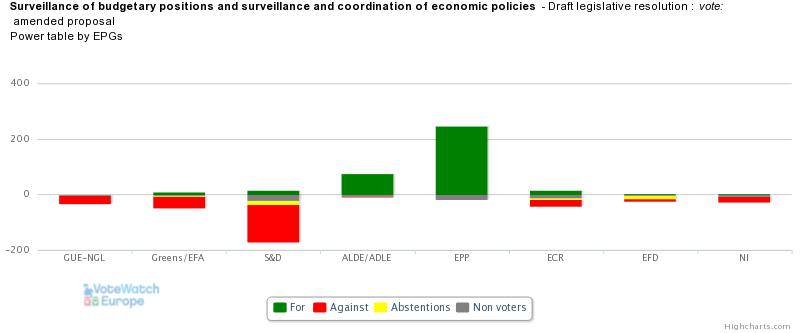
Call for the strengthening of the internal market for services, adopted in September 2013:
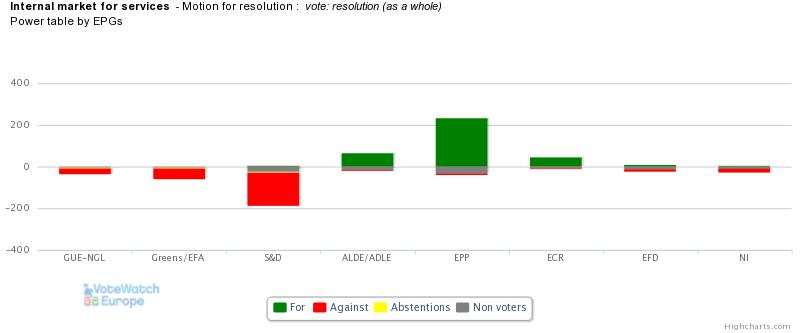
Call to exclude the investors’ protection clause from the TTIP, rejected in May 2013:
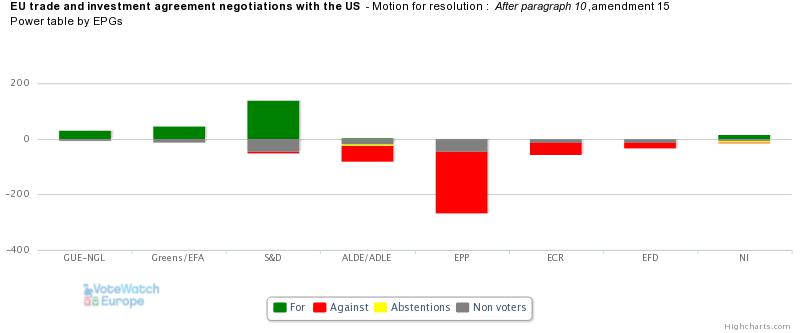
Be the first to post a comment.